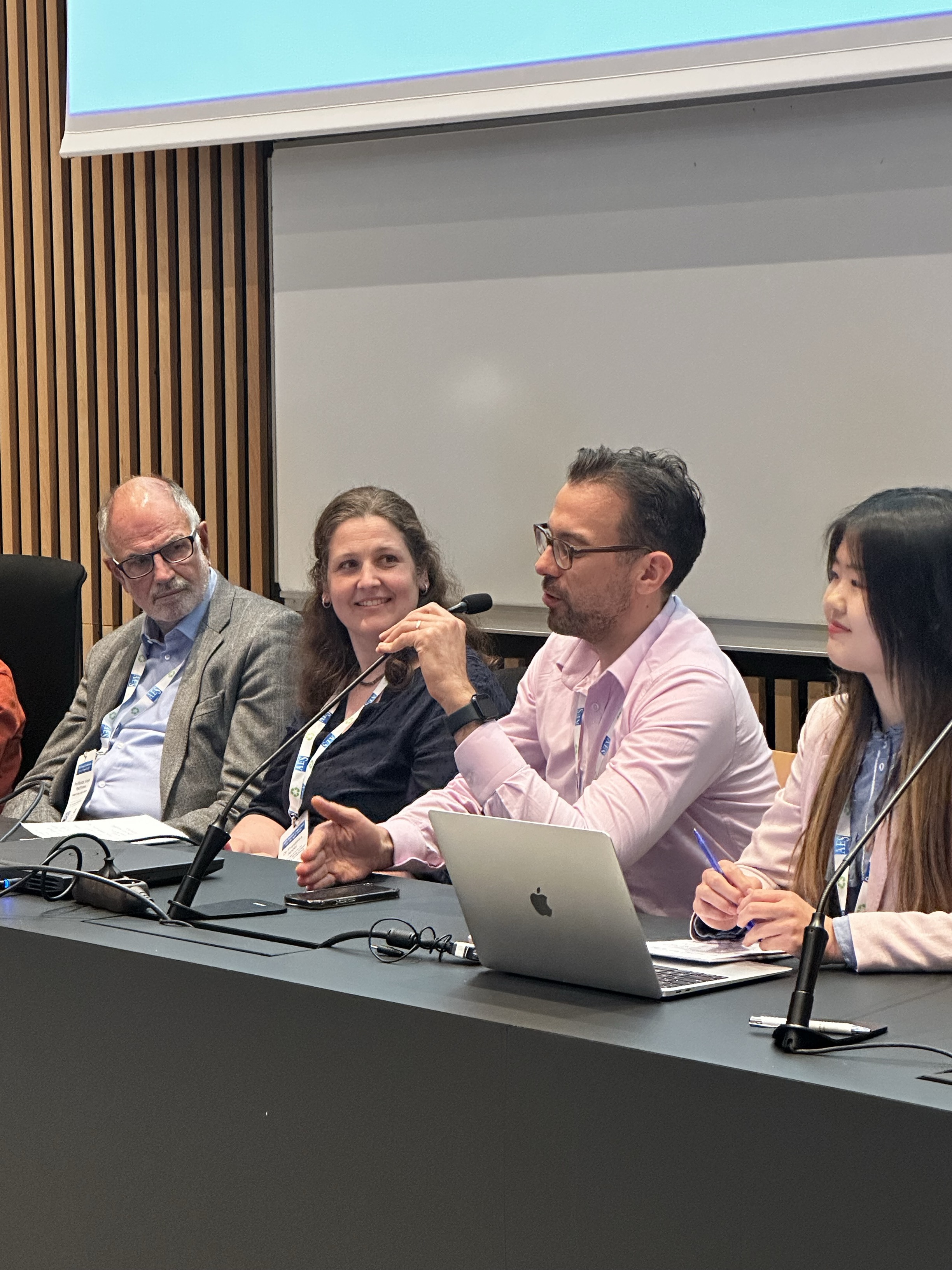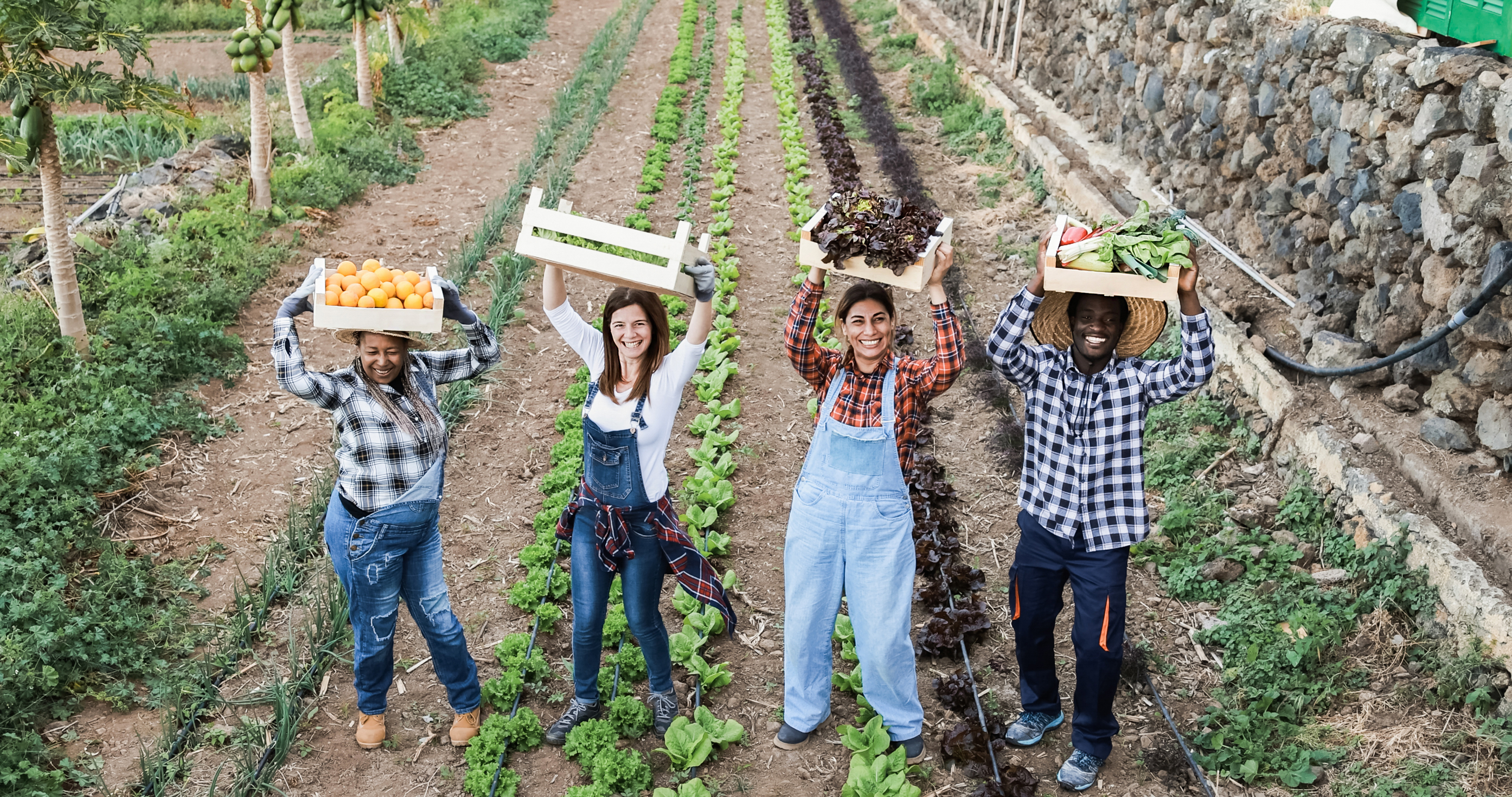Scaling Innovations and Shaping Policy Impact
Part 3 of Our “Securing European Agriculture” Session Insights - This final blog post recaps the
discussions on the future outlook of energy resilience, where our experts addressed scalability, adoption, and
policy impact of the solutions discussed:
Thee farmers discussing online data by pressmaster
Q7: How can we ensure that sustainable innovations are not just developed but implemented at scale?
Laura Moritz stressed that adoption can’t be tackled in isolation from human behaviour:
“In order to address the scalability of sustainable innovations, we need a much better understanding of elicited behavioural factors. Only then,” she argued, “can we design efficient and effective policy instruments that support real-world transitions.”
Q8: What are the expected economic and environmental impacts of these innovations?
Tamás Krisztin, from IIASA explained how integrated model-based assessments (linking GLOBIOM, FARM-DYN, and AgriPoliS) offer a powerful tool to analyse both system-wide market shifts and individual farm responses. These models integrate behavioural dynamics under different policy scenarios to highlight synergies and trade-offs between environmental goals (e.g. emission reductions) and economic realities (e.g. income stability). He emphasised that this scenario-based approach offers policymakers a way to anticipate unintended consequences and better tailor interventions.
Franziska Appel built on this, shifting the lens from numbers to structures. She shared a vision of what future farm structures in the EU could look like:
“There won’t be one solution for all, but rather specific niches. We will have -and need- more heterogeneity, diversity and specialisation, including new types of productions and services. For that reason, we need innovations on different levels and scales, and an EU policy that supports this diversity.”

Tamás Krisztin (IIASA)
Q9: Final takeaways for policymakers and stakeholders
To close off our session, we invited our external guests to share with us their reflections and takeaways from this session.
Deborah Roberts offered a clear message:
“Interdisciplinary research is needed, including psychology.”
She called for stronger collaboration across economics, behavioural science, and engineering, citing her team’s work at the James Hutton Institute on off-grid green hydrogen as an example of what’s possible when these fields come together.
Alan Matthews closed the session with a reminder of the weight that policies hold for innovation uptake:
“We must keep in mind: how will our research findings translate into policy measures? And who gets to decide? We can’t ignore the political dynamics at play—the incentives, lobbying, social unrest... Think about the massive farmer protests across Europe recently. That’s not just noise—it’s a signal. If we don’t design inclusive, fair, and context-aware policies, even the best innovations will hit a wall.”

Multi-generational farmer team holding wood boxes with fresh organic vegetables - Focus on faces by DisobeyArtPh
Conclusions
All these discussions during the “Securing European Agriculture” session brought forward many insights that will continue to shape the work of AgEnRes. The emphasis on behavioural understanding, interdisciplinary research, and the real-world political dynamics of policy design reinforces the need for context-sensitive and multi-level approaches in fostering innovation in agriculture. As we move forward, these reflections will inform our stakeholder engagement, modelling approaches, and policy dialogues.
We hope this blog series has been useful and insightful. We look forward to bringing you more takeaways from our work and relevant events in the near future. Until then, we invite you to explore our newsletter and browse our other blog posts for more.

